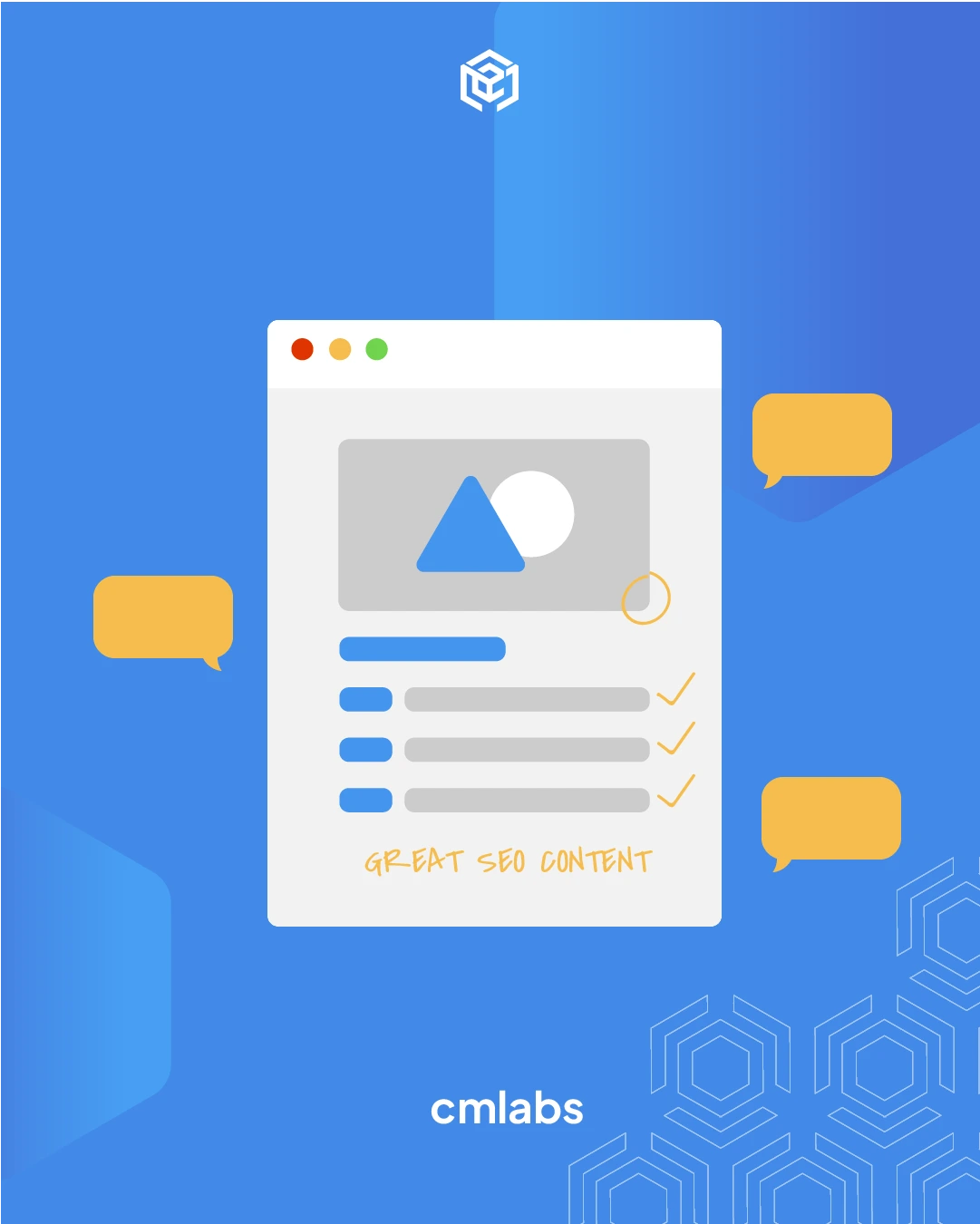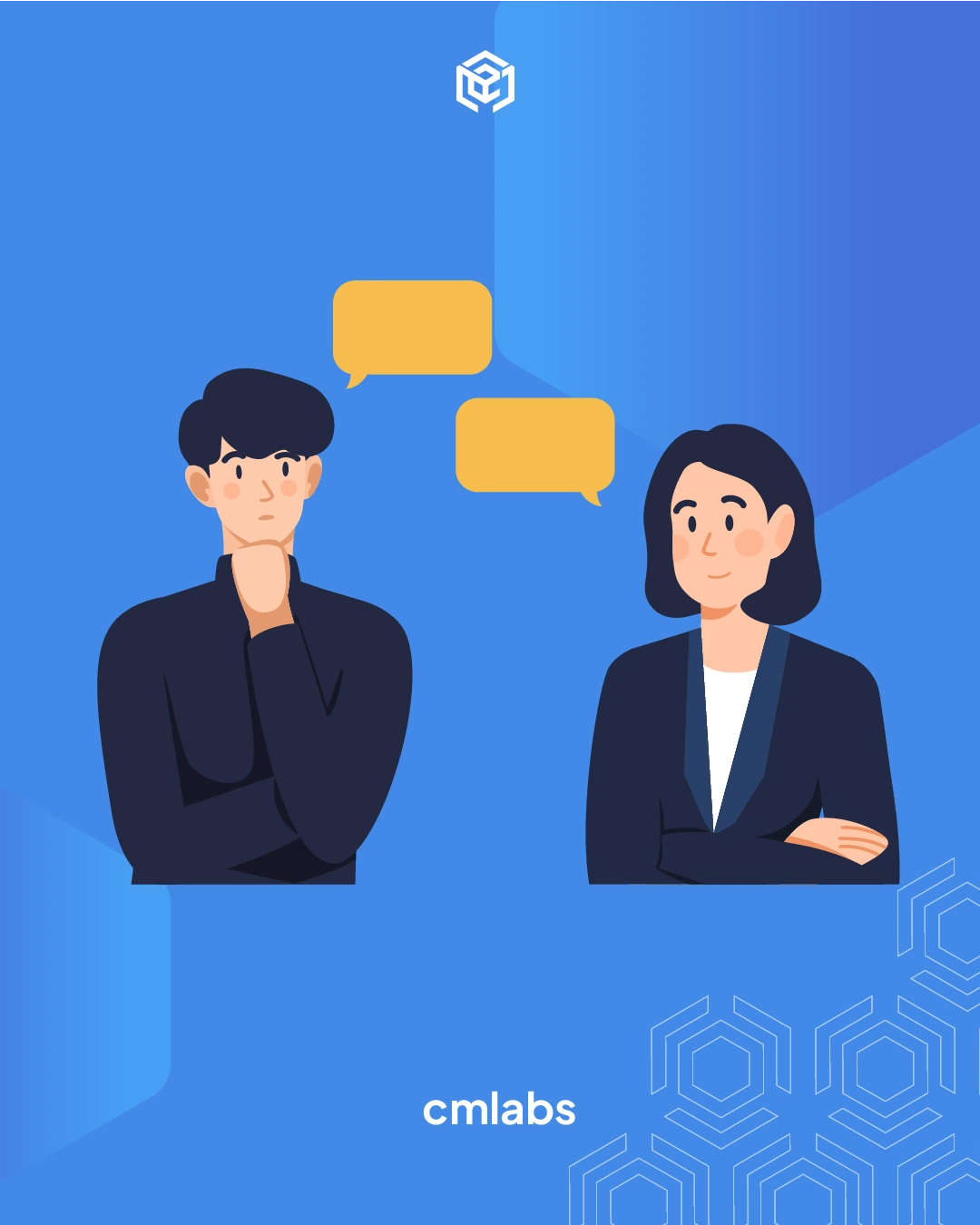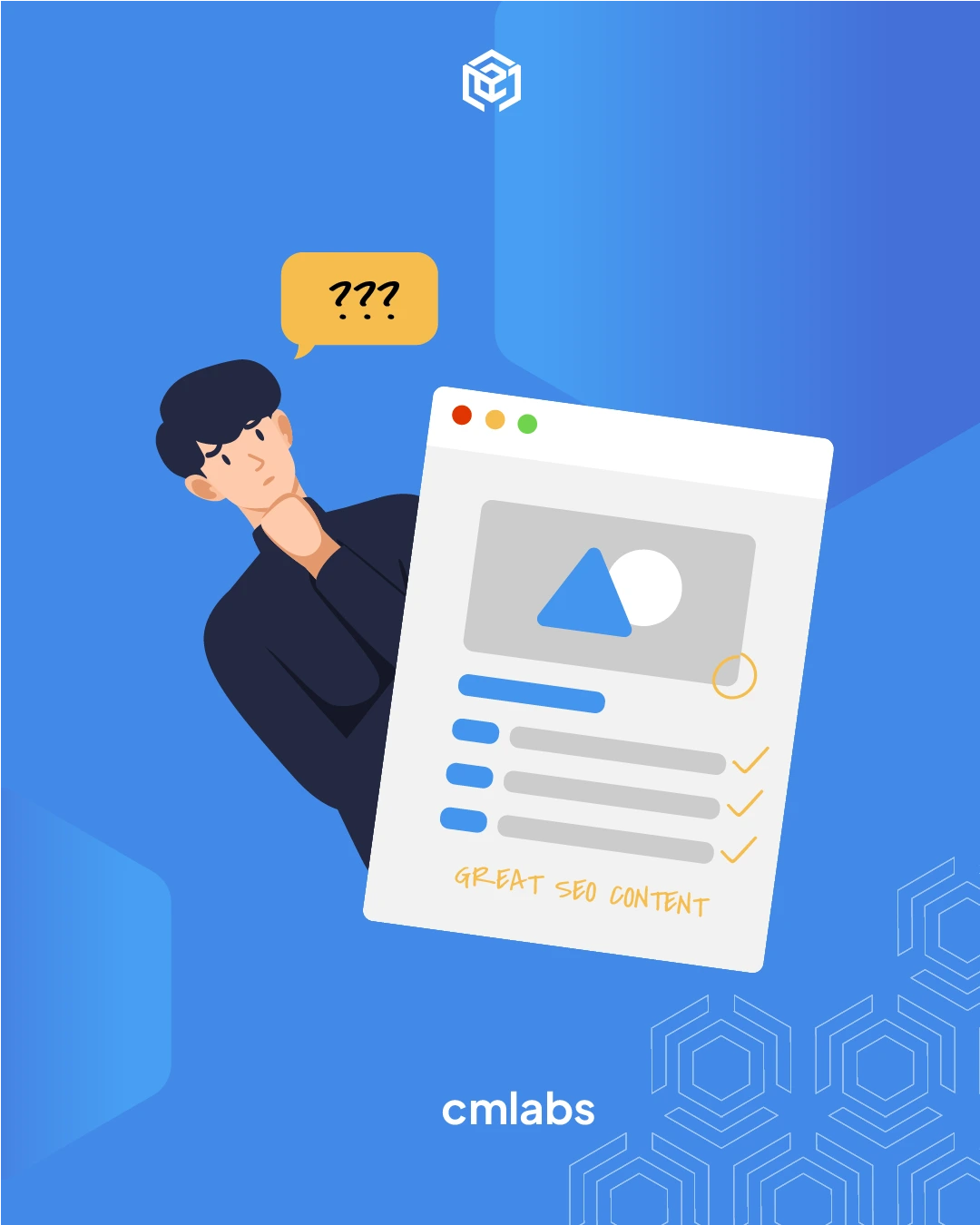We use cookies
This site uses cookies from cmlabs to deliver and enhance the quality of its services and to analyze traffic..
SEO SERVICES
Conduct in-depth technical website audits, strategically develop website projections, and increase your website authority.
ASO SERVICES
Elevate Your App’s Presence with Our Expert ASO Services – Boost Visibility and Drive Downloads!
WRITING SERVICES
We offer a variety of writing services to suit different business necessities. Reach broader audiences or lead specific industries? We've got you covered!
SEOlutions
A unified source of truth!
SEO & Digital Maternity Solution
SEO & Digital Maternity Solution: Leverage Cross-Platform Insights to Elevate Your Strategy with Expert Consultation
SEO & Digital Maternity Solution
Data Solution options:
Starting from Rp200 mio
Reinventing how a company get creative treatments
A new way to get your creative needs done. Agile team, efficient cost, and expedient way in a flexible yet scalable subscription plan!
Creative-as-a-Services
CaaS package options:
Based on Subscription
Pioneer in digital marketing software powerhouse
We’re excited to unveil our new range of Tech Solutions designed to drive your digital success. Whether you’re looking to enhance your website’s performance, streamline your tech stack, or unlock deeper insights from your data, we’ve got you covered.
Starting from Rp250 mio
Our Clients
Research and innovation center for digital transformation
Digital marketing combines technical skills and business knowledge at every stage. For marketing teams, improving budget management efficiency is crucial, as time is an invaluable resource that should be used wisely. At Sequence, we are dedicated to empowering you to optimize efficiency and strategic planning, ultimately enhancing the impact of your digital marketing efforts.
Subscription-based (IDR1,800/keyword)
Our Clients
BeyondSEO
References
SEO Tools for Webmasters
SEO Tools for Writers
SEO Tools
FIND THE SUITABLE PARTNERSHIP FOR YOUR COMPANY
Check out which cmlabs partnership program suits your company
WHITE LABEL SEO
for CorporateYour company is granted exclusive partnership rights to provide SEO services to our important clients, and we will provide a dedicated backend team to support your efforts.
AFFILIATE PROGRAM
for BizdevA new affiliate program is being introduced for skilled marketers and individuals with strong networks, offering commissions of up to 7% for generating profits independently.
DIGITAL AGENCY
for Marketing Partnerscmlabs is an essential partner for digital agencies, providing a unique selling proposition in Search Engine Optimization (SEO).
BACKLINK PARTNERSHIP
for Media / BloggerWe have a vast database of bloggers and media outlets across Indonesia, categorized by region and media type, giving our clients an edge in managing their media and SEO activities.
OFFICIAL TRAINING
We provide ongoing professional development and support to SEO professionals to ensure they are equipped to meet market demands.
JOIN AS CONTRIBUTOR
for Content WriterGreat opportunity for SEO Writers around the world. T&C applied!
ACADEMIC PARTNERSHIP
Through partnerships with universities in Indonesia, cmlabs has helped align academic curricula with industry demands.
Partnership
Sector & Industries
Tell us your SEO needs, our marketing team will help you find the best solution
As an alternative, you can schedule a conference call with our team
Schedule a Meeting?Contact
Survey
We use cookies
This site uses cookies from cmlabs to deliver and enhance the quality of its services and to analyze traffic..
Last updated: Dec 24, 2023

A sales pipeline is a flow that depicts the entire sales process from beginning to end. This concept is often used to track and monitor both ongoing and completed sales activities.
With this flow, you can identify the sales process, starting from prospect identification (prospecting) to the sale of a prospect or product
It also includes a sequence of strategies that the sales team must follow to improve the conversion rate from various prospects by identifying the number of potential customers along with their customer journey.
Within this pipeline, the sales and marketing team can observe how customers progress from initial interest to deciding to purchase a product/service.
In addition, it can also increase business revenue opportunities. How is this done? Find out more in the discussion below!
In general, the sequence or sales pipeline stages are not always the same as business goals and resources differ from one another.
Additionally, each business may have a different number of pipeline stages due to certain factors.
Nevertheless, in general, businesses usually implement marketing and sales techniques based on the following stages.
The first stage is prospect identification. This means that the marketing team is required to find prospects, potential customers based on specific segmentation, who may need the product/service.
In order to identify prospects, the sales marketing team can apply suitable marketing plan and strategies, one of which is personalized marketing.
After identifying prospects, the next step is to determine if the identified prospects are suitable and appropriate.
The qualification stage may include activities such as surveys or even direct interviews with the target audience or potential customers.
The sales team can determine suitable qualifications if the prospect meets the following criteria:
If the prospect has passed the qualification test, the next step is to make an offer. This stage can be carried out with various marketing strategies.
In essence, you need to convince the prospect that your product has more value compared to other competitors.
Emphasize that the offered product/service is the perfect solution to the prospect's current issues.
All these contacting activities can be done through phone calls, email marketing, social media, or in-person.
One of the goals of building connections is to make the prospect or potential customer trust the things conveyed by the sales team.
With a connection established, the credibility of the sales team in the eyes of potential consumers can increase, thereby increasing positive responses at the end of the sales process.
Although the prospect already knows the advantages and value of the product/service, there is still a possibility that they may have doubts.
Therefore, at this stage, the sales team must demonstrate good communication skills in front of the prospect and negotiate to eliminate any doubts.
In the negotiation process, the sales team can clarify the problem-solving value to avoid seeming forceful in convincing the prospect to make a purchase.
Closing stage indicates whether the potential customer is interested and willing to make a purchase.
If the sales deal has been reached, the prospect will usually make a purchase directly. However, in some more complex sales pipeline examples, the sales and marketing team may need to make additional efforts to successfully sell the product/service.
Although successfully getting the prospect to make a purchase, the stage does not end here.
Customer retention is a sales effort targeting old customers to make a purchase. Some methods that can be used to increase the retention rate include cross-selling or up-selling techniques.
Now that you know what is a sales pipeline and its stages, let's learn how to build a sales pipeline examples that can effectively boost sales and revenue.
The first step is to identify goals along with success metrics for each stage. The entire sales marketing team needs to understand the marketing goals to prioritize prospects with high potential in each stage.
With planned goals, you can improve efficiency in utilizing resources to prioritize high-potential prospects first.
After setting goals, the next step is to determine the target customers and gather their contact information to facilitate the contacting stage.
You can use a database to store contact information and segment potential customers for better organization.
Designing a marketing plan beforehand can reduce errors in presenting products/services to potential buyers.
Equipping yourself with a well-thought-out plan can also increase the optimism of the sales team, allowing them to focus more on sales activities and metrics within the marketing plan.
Lead nurturing is a strategy to build relationships with prospects while increasing their trust in the products/services being sold.
However, it's essential to note that lead nurturing doesn't mean you have to send messages continuously to potential buyers.
Instead of building a positive relationship, such activities may make your offers look like spam. To implement lead nurturing, you can try strategies such as:
Another factor that affects the success of this strategy is its continuity. This means you need to navigate the success of each stage in this pipeline and regularly update it.
If you have experimented with the above stages but find the results less effective, you need to refine the stages according to the needs and marketing goals of your business.
WDYT, you like my article?
Couldn't find result for "Mulki" try to search with different keyword
Suggestion:
Tell us your SEO needs, our marketing team will help you find the best solution
As an alternative, you can schedule a conference call with our team
Schedule a Meeting?



cmlabs Jakarta Jl. Pluit Kencana Raya No.63, Pluit, Penjaringan, Jakarta Utara, DKI Jakarta, 14450, Indonesia
(+62) 21-666-04470These strategic alliances allow us to offer our clients a wider range of SEO innovative solutions and exceptional service.

Psst! Hey there, SEO Stats and Tools SEO company! If you've ever planned of conquering the United Kingdom market, you've come to the right place!